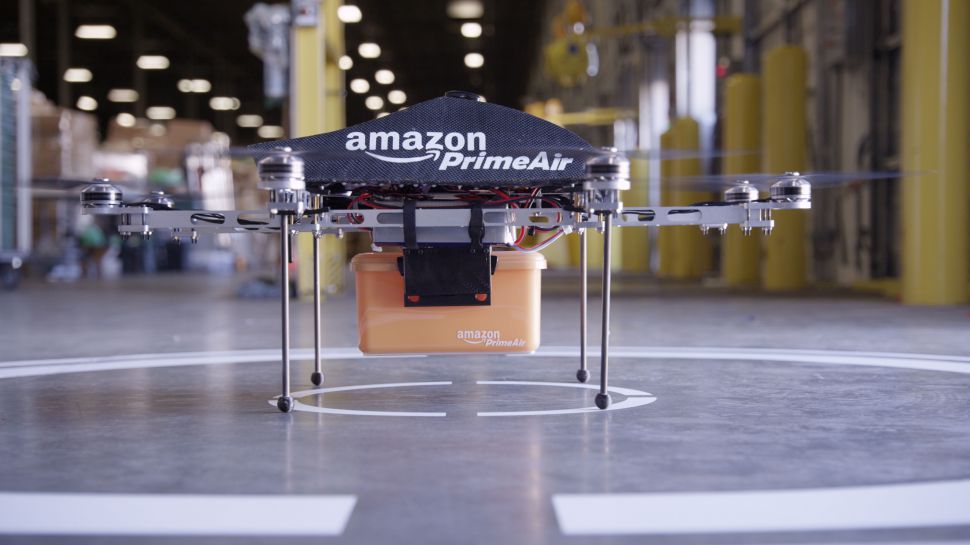Amazon's delivery drones could self-destruct to keep you safe
There’s a 30% chance of drone innards today

Amazon’s drone delivery service isn’t the norm quite yet, so it’s not often that we stop to consider the potential drawbacks of our skies being filled with automated flying machines. Something certainly worth tackling before it happens on a wider scale is what happens when a drone suddenly falls from the sky.
No matter how good the technology in Amazon’s drones is they’re going to have to contend with sudden weather changes, software malfunctions, and vandalistic bystanders, all of which could bring them very quickly down to Earth.
Fortunately, Amazon is already considering a solution. And no, it’s not lead-lined umbrellas.
Heads up
According to Digital Trends, the online retailer is looking into a system that would pick up when a drone is malfunctioning and prompt it to disintegrate in mid-air. While this doesn’t guarantee nothing will fall from the sky, the object is likely to be small enough that any kind of impact would be inconsequential.
The system is outlined in a patent recently granted to Amazon by the US Patent and Trademark Office, titled ‘direct fragmentation for unmanned airborne vehicles (UAVs)’.
Within the document, Amazon states that something as simple as “unexpected heat, cold, wind, rain, hail, high or low (e.g., barometric) pressure regions” could affect a drone’s rotor system, flight control, battery or flight sensors and send it tumbling.
It’s detailed how the drone would be able to assess the conditions on the ground before dismantling themselves, noting: “The fragmentation sequence includes a release timing and a release location to fragment away (eg, release, drop, jettison, eject, etc away) one or more UAV components in case the flight operation of the UAV is disrupted.”
Sign up for breaking news, reviews, opinion, top tech deals, and more.
While we imagined a kind of instant comic book disintegration that would leave drone glitter falling from the sky, Amazon apparently intends the drones to break up piece by piece. The patent states that different parts of the drone will be shed to change “the weight, speed, air drag coefficient, and other factors related to the UAV” so that it can make a landing that won’t harm those below.
This does, admittedly make more sense. Amazon customers aren’t likely to opt for drone delivery if there’s a chance that their package could disintegrate entirely.
This is one of many patents Amazon has been granted in relation to its drone delivery service. It’s actually one of the less outlandish ideas the company has been looking into and it’s a good insight into how Amazon is considering the wide range of issues that are likely to arise.
- Interested in a drone of your own? These are the best drones 2017 has to offer

Emma Boyle is TechRadar’s ex-Gaming Editor, and is now a content developer and freelance journalist. She has written for magazines and websites including T3, Stuff and The Independent. Emma currently works as a Content Developer in Edinburgh.